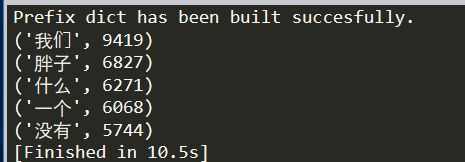- 用Python爬取网易云歌单
Avaricious_Bear
python开发语言
最近,博主喜欢上了听歌,但是又苦于找不到好音乐,于是就打算到网易云的歌单中逛逛本着“用技术改变生活”的想法,于是便想着写一个爬虫爬取网易云的歌单,并按播放量自动进行排序这篇文章,我们就来讲讲怎样爬取网易云歌单,并将歌单按播放量进行排序1、用requests爬取网易云歌单打开网易云音乐歌单首页,不难发现这是一个静态网页,而且格式很有规律,爬取起来应该十分简单按照以前的套路,很快就可以写完代码,无非就
- 基于Python的Twitter Card数据爬取与分析实战:从入门到精通
Python爬虫项目
pythontwitterdreamweaver自动化开发语言宽度优先爬虫
摘要本文详细介绍了如何使用Python最新技术栈构建一个高效的TwitterCard数据爬虫系统。我们将从TwitterCard的基本概念讲起,逐步深入到爬虫架构设计、反爬策略应对、数据解析与存储等核心环节。文章包含完整的代码实现,使用Playwright+Asyncio的高性能爬取方案,以及数据分析与可视化的实战案例。通过本文,读者将掌握大规模社交媒体数据采集的关键技术,并能够将这些技术应用于实
- Python爬虫实战:高效解析OpenGraph协议数据
Python爬虫项目
python爬虫开发语言宽度优先音视频json
OpenGraph协议简介OpenGraph协议是由Facebook于2010年推出的一种网页元数据标准,旨在使任何网页都能成为社交图中的丰富对象。通过在网页的部分添加特定的标签,网站所有者可以控制内容在社交媒体上分享时的呈现方式。OpenGraph协议的核心元数据包括:html这些标签不仅被Facebook使用,也被Twitter、LinkedIn、WhatsApp等主流社交平台广泛支持。据统计
- Python高级数据类型:字典(Dictionary)
PythonicCC
python开发语言
字典是Python中非常重要且实用的数据结构,本文将全面详细地介绍字典的所有知识点,从基础概念到高级用法,帮助初学者彻底掌握字典的使用。1.字典简介1.1为什么需要字典?假设我们需要存储公司员工的姓名、年龄、职务和工资信息。使用列表可以这样实现:staff_list=[["tom",20,"teacher",6000],["rose",18,"hr",5000],["jack",20,"行政",4
- 【小白记录python】——类(class)的简单解释
faderbic
python开发语言
目录什么是类类和函数的区别构建一个类什么是类在编程中,类(Class)是一种用户自定义的数据类型,它将数据(通常称为属性或成员变量)和对这些数据进行操作的函数(通常称为方法或成员函数)封装在一起,相比于一般的函数更方便调用,通俗来讲,类就是很多函数的集合,这些函数共用一个数据源。类可以被看作是创建对象的模板或蓝图。通过类,可以创建多个具有相同结构和行为的对象实例。以下是对类的几个关键特点的解释:数
- 使用 Python 爬取网易云音乐歌单数据(完整教程)
Python爬虫项目
python开发语言githubselenium爬虫
一、引言随着在线音乐平台的普及,网易云音乐(NetEaseCloudMusic)凭借其个性化的推荐算法和丰富的用户互动,吸引了大量用户。网易云音乐的歌单中包含了丰富的音乐数据,包括歌曲名、歌手、专辑、播放量、评论数等信息。通过爬取这些数据,可以对音乐流行趋势进行分析,挖掘音乐推荐策略,甚至训练个性化推荐模型。本教程将使用Python构建一个爬虫,解析网易云音乐的歌单接口,获取歌曲数据并进行数据分析
- 用AI“看病”,靠谱吗?|聊聊如何用Python生成个性化健康建议
Echo_Wish
前沿技术人工智能人工智能python开发语言
用AI“看病”,靠谱吗?|聊聊如何用Python生成个性化健康建议说实话,健康这事儿,谁不关心?可问题是,现代人越来越不想“看病”,倒不是说我们不在乎身体,而是——太麻烦、太贵、太笼统!你可能遇到过这种情况:明明每天健身,还被体检报告说“轻度脂肪肝”;营养均衡,但血糖还是偏高;去医院,医生说“少吃多动”,这谁听了不头疼?问题就出在一个词上:“个性化”。好消息是,AI已经可以提供定制化的健康建议了,
- Python 单例模式几种实现方式
@MMiL
PyBuildpythonmatplotlibnumpypandas
文章目录1基础实现方式1.1模块导入法(推荐)1.2重写`__new__`方法2进阶实现方式2.1元类(Metaclass)控制2.2线程安全单例2.3单例装饰器3关键问题分析4实践建议各位老板好,单例模式确保一个类只有一个实例,并提供全局访问点。适用于日志记录、配置管理、数据库连接池等场景。以下是Python单例模式的5种实现方式:1基础实现方式1.1模块导入法(推荐)Python模块天然支持单
- opencv、torch、torchvision、tensorflow的区别
一、框架定位与核心差异PyTorch动态计算图:实时构建计算图支持Python原生控制流(如循环/条件),调试便捷。学术主导:2025年工业部署份额24%,适合快速原型开发(如无人机自动驾驶、情绪识别)。TensorFlow静态计算图优化:预编译图结构提升部署效率支持动态图(Eager模式)兼顾灵活性。工业部署首选:市场份额38%,擅长边缘计算(YOLO部署)和大规模项目(工业自动化)-59)。O
- Python简化常用技巧
优雅的心情
自动化测试python开发语言
文章目录一、列表表达式二、语法糖一、列表表达式Python为了简化程序的代码行数做了很多努力,其中最经典的就是列表表达式。比如我有如下函数,用来输出一个单词中的所有字符:defoutput_letter(letter):l=[]foriteminletter:l.append(item)returnlif__name__=="__main__":print(output_letter('kevin
- Python 网络编程从入门到精通:架构、协议与 Socket 实现
Python网络编程从入门到精通:架构、协议与Socket实现网络编程是现代软件开发的核心技术之一,它允许不同设备上的程序通过网络进行通信和数据交换。本文将深入探讨网络编程的基础知识,包括软件架构设计模式、网络通信三要素、TCP与UDP协议的特点,以及Python中Socket编程的实现方法。一、软件架构设计模式1.C/S架构(Client/Server)C/S架构是最经典的网络应用架构,由客户端
- python求基本勾股数_第一章:勾股数组(1)
毕达哥拉斯定理(即勾股定理),它表明任一个直角三角形的两条直角边长的平方和等于斜边长的平方。用公式表示就是a^2+b^2=c^2第一个问题是,是否存在无穷多个勾股数组,即满足方程a^2+b^2=c^2的自然数三元组(a,b,c)。答案是“肯定的”。如果取勾股数组(a,b,c),用整数d乘它,则得到新的勾股数组(da,db,dc)。这是成立的,因为(da)^2+(db)^2=d^2(a^2+b^2)
- python flask restful_Flask应用示例1 - 通过Flask实现Restful服务
weixin_39548787
pythonflaskrestful
1,前言Python的强大,已经涉及到软件开发领域的方方面面。然而,Python入门容易,精确很难,需要深入研究。在Web方面同样如此,常用的PythonWeb框架,例如Django、Flask、Tornado等等,共计有100多种,各有优劣。本文以Flask为例,介绍Flask的Restful实现方式,主要实现对数据表的增删查改操作。2,需求在开发代码之前,需要提前明确URL请求、HTTP方法与
- Python中几个有趣的语法糖
weixin_34368949
python
2019独角兽企业重金招聘Python工程师标准>>>withwith语句适用于对资源进行访问的场合,确保不管使用过程中是否发生异常都会执行必要的“清理”操作,释放资源,比如文件使用后自动关闭、线程中锁的自动获取和释放等。http://www.ibm.com/developerworks/cn/opensource/os-cn-pythonwith/fieldyield的好处是显而易见的,把一个函
- java毕业设计-基于Javaweb的家常小菜烹饪学习管理系统的设计与实现(源码+LW+部署文档+全bao+远程调试+代码讲解等)
程序猿刘
vuespringboot毕业设计java课程设计学习
博主介绍:✌️码农一枚,专注于大学生项目实战开发、讲解和毕业文撰写修改等。全栈领域优质创作者,博客之星、掘金/华为云/阿里云/InfoQ等平台优质作者、专注于Java、小程序技术领域和毕业项目实战✌️技术范围::小程序、SpringBoot、SSM、JSP、Vue、PHP、Java、python、爬虫、数据可视化、大数据、物联网、机器学习等设计与开发。主要内容:免费开题报告、任务书、全bao定制+
- 实用:python中的语法糖
Monkey_24
pythonPython学习记录语法糖pythonifelseyieldfromforin
案例一:for循环:foriin[1,2,3]:print(i)等价于:foriin[1,2,3]:print(i)案例二:yield生成器:foriin(lambdan:(yieldfromrange(n)))(3):print(i)等价于:deffn(n):foriinrange(n):yieldigt=fn(3)foriingt:print(i)案例三:ifelse判断(lambdan:pr
- 【工具篇】【从冷笑话到职场革命:Manus 100 问挑战人类认知极限】
再见孙悟空_
AI进阶之旅》【2025AI工具合集】【2025AI学习从零单排系列】ManusAIManusmanus邀请码manus体验ManusPPTManus对比DeepSeek
一、基础认知篇1.Manus到底是什么?它是全球首款通用型AI智能体,简单来说就是能独立完成任务的数字助手。比如你让它分析股票,它不仅能给出报告,还能自动调用Python生成图表,甚至在你睡觉的时候还能在云端继续工作。2.名字“Manus”有什么含义?来自拉丁语“MensetManus”,直译是“心智与手”。官方解释是希望它既能思考又能行动,把人类的想法变成现实,就像有个AI助手帮你干活。3.谁开
- python +pyautocad 在CAD中 画一个线段带箭头
默金……
AutoCADpython前端数据库
python+pyautocad在CAD中画一个线段带箭头#!/usr/bin/envpython#-*-coding:utf-8-*-frompyautocadimportAutocad,APoint,aDoubleimportmathpyacad=Autocad(create_if_not_exists=True)pyacad.prompt("Hello!Autocadfrompyautoca
- java毕业设计源码案例-基于ssm+协同过滤的个性化小说推荐系统设计与实现(源码+LW+部署文档+全bao+远程调试+代码讲解等)
项目帮
springbootjava计算机毕设java课程设计开发语言
博主介绍:✌️码农一枚,专注于大学生项目实战开发、讲解和毕业文撰写修改等。全栈领域优质创作者,博客之星、掘金/华为云/阿里云/InfoQ等平台优质作者、专注于Java、小程序技术领域和毕业项目实战✌️技术范围::小程序、SpringBoot、SSM、JSP、Vue、PHP、Java、python、爬虫、数据可视化、大数据、物联网、机器学习等设计与开发。主要内容:免费功能设计,开题报告、任务书、全b
- python 语法糖【不断更新】
linzch3
pythonpython
1.得到a和b两个数的最大值solution:c=[b,a][a>b]测试:>>>a=1>>>b=2>>>c=[b,a][a>b]>>>c22.假设现在给定了一个list:a=[[1,2],[3,4,5],[6,7],[8],[9]]问如何将其转化成:[1,2,3,4,5,6,7,8,9]其实就是将所有数据都拿出来组成一个1*n的list。solution1:使用列表表达式>>>a=[[1,2],
- pyautocad 的项目扩展与二次开发
pyautocad的项目扩展与二次开发1.项目的基础介绍pyautocad是一个开源项目,它提供了一个Python库,用于与AutoCAD进行交互。通过这个库,开发者可以在Python脚本中调用AutoCAD的功能,实现自动化的绘图、修改和管理等功能。该项目的目标是让开发者能够更加便捷地控制AutoCAD,提高工作效率。2.项目的核心功能pyautocad的核心功能包括:与AutoCAD的COM接
- 深入解析 SymPy 中的符号计算:导数与变量替换的实践指南
老歌老听老掉牙
pythonsympy
在符号计算领域,SymPy作为Python的核心代数库,为数学推导提供了强大支持。然而,当处理复杂表达式时,用户常遇到两个典型挑战:函数导数的正确计算和变量的有效替换。本文将深入探讨这些问题,提供专业解决方案,并揭示其背后的数学原理函数导数的正确计算方法问题本质分析在SymPy中计算导数时,常见错误是将函数视为独立符号而非变量依赖关系。考虑以下情景:h=symbols('h')R_h=symbol
- springboot+vue生态系统的气象数据可视化平台Java+python-计算机毕业设计
目录功能和技术介绍具体实现截图开发核心技术:开发环境开发步骤编译运行核心代码部分展示系统设计详细视频演示可行性论证软件测试源码获取功能和技术介绍该系统基于浏览器的方式进行访问,采用springboot集成快速开发框架,前端使用vue方式,基于es5的语法,开发工具IntelliJIDEAx64,因为该开发工具,内嵌了Tomcat服务运行机制,可不用单独下载Tomcatserver服务器。由于考虑到
- Python:勾股数
Dominick_Su
Python编程python开发语言后端
找出一定范围内的勾股数a,b,c(均为正整数),而且三个数互质。importmathMAX=100#设定范围,a,b,c都在100以内PN=[]#PythagoreanNumber勾股数forainrange(2,int(MAX//math.sqrt(2))+1):forbinrange(a+1,int(math.sqrt(MAX*MAX-a*a))+1,2):c=int(math.sqrt(s:
- 计算机专业大数据毕业设计-基于 Spark 的音乐数据分析项目(源码+LW+部署文档+全bao+远程调试+代码讲解等)
程序猿八哥
数据可视化计算机毕设spark大数据课程设计spark
博主介绍:✌️码农一枚,专注于大学生项目实战开发、讲解和毕业文撰写修改等。全栈领域优质创作者,博客之星、掘金/华为云/阿里云/InfoQ等平台优质作者、专注于Java、小程序技术领域和毕业项目实战✌️技术范围::小程序、SpringBoot、SSM、JSP、Vue、PHP、Java、python、爬虫、数据可视化、大数据、物联网、机器学习等设计与开发。主要内容:免费功能设计,开题报告、任务书、全b
- 如何使用爬虫简单的爬取一个网页的静态前端代码
什么是爬虫?Python爬虫是一种使用Python语言编写的程序,用于自动访问网页并提取所需信息。它通常用于网络数据抓取、数据挖掘和信息收集。Python爬虫可以模拟浏览器行为,向服务器发送请求并接收响应数据,然后解析这些数据以获取有用的信息。爬虫的基本原理(流程)发送请求:爬虫向目标网站的服务器发送HTTP请求(通常是GET请求)。获取响应:服务器返回网页的HTML内容。解析内容:爬虫解析HTM
- [Python] -项目实战8- 构建一个简单的 Todo List Web 应用(Flask)
踏雪无痕老爷子
Pythonpython开发语言
一、为什么选Flask?轻量上手快:仅需几行代码就能跑一个可用的Web应用。灵活扩展:可接入数据库、身份认证、前端框架等。教育性强:涵盖前后端交互基础,适合入门全栈开发。二、项目结构建议flask_todo/├──app.py├──templates/│└──index.html├──static/│└──style.css├──todo.db└──requirements.txtapp.py:后
- Python连接AutoCAD第三方库pyautocad基础介绍(一)
Smile丶Life丶
AutoCAD插件开发python开发语言AutoCADpyautocad
一、前言在开始探索Python连接CAD实现自动化绘图之前,让我们先明确一下读懂本教程所需的技术及知识基础。首先需要你熟练使用Python编程语言,其次,对于CAD软件,本教程将以常见的AutoCAD平台为例,但您至少需要对CAD的基本操作和绘图原理有初步的认识。了解如何创建、编辑图形对象,设置图层、颜色、线型等属性,以及保存和导出CAD图纸的基本流程。以下是本文所使用的开发环境:Python解释
- 在 Conda 中删除环境及所有安装的库
Studying 开龙wu
conda
注意事项1.删除环境前确保你没有在该环境中运行任何程序。2.删除操作是不可逆的,所有该环境中的包和配置都会被永久删除。3.如果你想保留环境的配置信息,可以在删除前使用condaenvexport>environment.yml导出环境配置。关于requirements.txt和environment.yaml文件使用介绍详情可参考以往文章,争对机器学习和深度学习里Python项目开发管理项目依赖的
- 计算机毕业设计Python+uniapp校园兼职系统小程序(小程序+源码+LW)
Python毕设源码程序高学长
python课程设计uni-app
计算机毕业设计Python+uniapp校园兼职系统小程序(小程序+源码+LW)该项目含有源码、文档、程序、数据库、配套开发软件、软件安装教程项目运行环境配置:Pychram社区版+python3.7.7+Mysql5.7+uni+HBuilderX+listpip+Navicat11+Django+nodejs。项目技术:django+python+UNI等等组成,B/S模式+pychram管理
- 枚举的构造函数中抛出异常会怎样
bylijinnan
javaenum单例
首先从使用enum实现单例说起。
为什么要用enum来实现单例?
这篇文章(
http://javarevisited.blogspot.sg/2012/07/why-enum-singleton-are-better-in-java.html)阐述了三个理由:
1.enum单例简单、容易,只需几行代码:
public enum Singleton {
INSTANCE;
- CMake 教程
aigo
C++
转自:http://xiang.lf.blog.163.com/blog/static/127733322201481114456136/
CMake是一个跨平台的程序构建工具,比如起自己编写Makefile方便很多。
介绍:http://baike.baidu.com/view/1126160.htm
本文件不介绍CMake的基本语法,下面是篇不错的入门教程:
http:
- cvc-complex-type.2.3: Element 'beans' cannot have character
Cb123456
springWebgis
cvc-complex-type.2.3: Element 'beans' cannot have character
Line 33 in XML document from ServletContext resource [/WEB-INF/backend-servlet.xml] is i
- jquery实例:随页面滚动条滚动而自动加载内容
120153216
jquery
<script language="javascript">
$(function (){
var i = 4;$(window).bind("scroll", function (event){
//滚动条到网页头部的 高度,兼容ie,ff,chrome
var top = document.documentElement.s
- 将数据库中的数据转换成dbs文件
何必如此
sqldbs
旗正规则引擎通过数据库配置器(DataBuilder)来管理数据库,无论是Oracle,还是其他主流的数据都支持,操作方式是一样的。旗正规则引擎的数据库配置器是用于编辑数据库结构信息以及管理数据库表数据,并且可以执行SQL 语句,主要功能如下。
1)数据库生成表结构信息:
主要生成数据库配置文件(.conf文
- 在IBATIS中配置SQL语句的IN方式
357029540
ibatis
在使用IBATIS进行SQL语句配置查询时,我们一定会遇到通过IN查询的地方,在使用IN查询时我们可以有两种方式进行配置参数:String和List。具体使用方式如下:
1.String:定义一个String的参数userIds,把这个参数传入IBATIS的sql配置文件,sql语句就可以这样写:
<select id="getForms" param
- Spring3 MVC 笔记(一)
7454103
springmvcbeanRESTJSF
自从 MVC 这个概念提出来之后 struts1.X struts2.X jsf 。。。。。
这个view 层的技术一个接一个! 都用过!不敢说哪个绝对的强悍!
要看业务,和整体的设计!
最近公司要求开发个新系统!
- Timer与Spring Quartz 定时执行程序
darkranger
springbean工作quartz
有时候需要定时触发某一项任务。其实在jdk1.3,java sdk就通过java.util.Timer提供相应的功能。一个简单的例子说明如何使用,很简单: 1、第一步,我们需要建立一项任务,我们的任务需要继承java.util.TimerTask package com.test; import java.text.SimpleDateFormat; import java.util.Date;
- 大端小端转换,le32_to_cpu 和cpu_to_le32
aijuans
C语言相关
大端小端转换,le32_to_cpu 和cpu_to_le32 字节序
http://oss.org.cn/kernel-book/ldd3/ch11s04.html
小心不要假设字节序. PC 存储多字节值是低字节为先(小端为先, 因此是小端), 一些高级的平台以另一种方式(大端)
- Nginx负载均衡配置实例详解
avords
[导读] 负载均衡是我们大流量网站要做的一个东西,下面我来给大家介绍在Nginx服务器上进行负载均衡配置方法,希望对有需要的同学有所帮助哦。负载均衡先来简单了解一下什么是负载均衡,单从字面上的意思来理解就可以解 负载均衡是我们大流量网站要做的一个东西,下面我来给大家介绍在Nginx服务器上进行负载均衡配置方法,希望对有需要的同学有所帮助哦。
负载均衡
先来简单了解一下什么是负载均衡
- 乱说的
houxinyou
框架敏捷开发软件测试
从很久以前,大家就研究框架,开发方法,软件工程,好多!反正我是搞不明白!
这两天看好多人研究敏捷模型,瀑布模型!也没太搞明白.
不过感觉和程序开发语言差不多,
瀑布就是顺序,敏捷就是循环.
瀑布就是需求、分析、设计、编码、测试一步一步走下来。而敏捷就是按摸块或者说迭代做个循环,第个循环中也一样是需求、分析、设计、编码、测试一步一步走下来。
也可以把软件开发理
- 欣赏的价值——一个小故事
bijian1013
有效辅导欣赏欣赏的价值
第一次参加家长会,幼儿园的老师说:"您的儿子有多动症,在板凳上连三分钟都坐不了,你最好带他去医院看一看。" 回家的路上,儿子问她老师都说了些什么,她鼻子一酸,差点流下泪来。因为全班30位小朋友,惟有他表现最差;惟有对他,老师表现出不屑,然而她还在告诉她的儿子:"老师表扬你了,说宝宝原来在板凳上坐不了一分钟,现在能坐三分钟。其他妈妈都非常羡慕妈妈,因为全班只有宝宝
- 包冲突问题的解决方法
bingyingao
eclipsemavenexclusions包冲突
包冲突是开发过程中很常见的问题:
其表现有:
1.明明在eclipse中能够索引到某个类,运行时却报出找不到类。
2.明明在eclipse中能够索引到某个类的方法,运行时却报出找不到方法。
3.类及方法都有,以正确编译成了.class文件,在本机跑的好好的,发到测试或者正式环境就
抛如下异常:
java.lang.NoClassDefFoundError: Could not in
- 【Spark七十五】Spark Streaming整合Flume-NG三之接入log4j
bit1129
Stream
先来一段废话:
实际工作中,业务系统的日志基本上是使用Log4j写入到日志文件中的,问题的关键之处在于业务日志的格式混乱,这给对日志文件中的日志进行统计分析带来了极大的困难,或者说,基本上无法进行分析,每个人写日志的习惯不同,导致日志行的格式五花八门,最后只能通过grep来查找特定的关键词缩小范围,但是在集群环境下,每个机器去grep一遍,分析一遍,这个效率如何可想之二,大好光阴都浪费在这上面了
- sudoku solver in Haskell
bookjovi
sudokuhaskell
这几天没太多的事做,想着用函数式语言来写点实用的程序,像fib和prime之类的就不想提了(就一行代码的事),写什么程序呢?在网上闲逛时发现sudoku游戏,sudoku十几年前就知道了,学生生涯时也想过用C/Java来实现个智能求解,但到最后往往没写成,主要是用C/Java写的话会很麻烦。
现在写程序,本人总是有一种思维惯性,总是想把程序写的更紧凑,更精致,代码行数最少,所以现
- java apache ftpClient
bro_feng
java
最近使用apache的ftpclient插件实现ftp下载,遇见几个问题,做如下总结。
1. 上传阻塞,一连串的上传,其中一个就阻塞了,或是用storeFile上传时返回false。查了点资料,说是FTP有主动模式和被动模式。将传出模式修改为被动模式ftp.enterLocalPassiveMode();然后就好了。
看了网上相关介绍,对主动模式和被动模式区别还是比较的模糊,不太了解被动模
- 读《研磨设计模式》-代码笔记-工厂方法模式
bylijinnan
java设计模式
声明: 本文只为方便我个人查阅和理解,详细的分析以及源代码请移步 原作者的博客http://chjavach.iteye.com/
package design.pattern;
/*
* 工厂方法模式:使一个类的实例化延迟到子类
* 某次,我在工作不知不觉中就用到了工厂方法模式(称为模板方法模式更恰当。2012-10-29):
* 有很多不同的产品,它
- 面试记录语
chenyu19891124
招聘
或许真的在一个平台上成长成什么样,都必须靠自己去努力。有了好的平台让自己展示,就该好好努力。今天是自己单独一次去面试别人,感觉有点小紧张,说话有点打结。在面试完后写面试情况表,下笔真的好难,尤其是要对面试人的情况说明真的好难。
今天面试的是自己同事的同事,现在的这个同事要离职了,介绍了我现在这位同事以前的同事来面试。今天这位求职者面试的是配置管理,期初看了简历觉得应该很适合做配置管理,但是今天面
- Fire Workflow 1.0正式版终于发布了
comsci
工作workflowGoogle
Fire Workflow 是国内另外一款开源工作流,作者是著名的非也同志,哈哈....
官方网站是 http://www.fireflow.org
经过大家努力,Fire Workflow 1.0正式版终于发布了
正式版主要变化:
1、增加IWorkItem.jumpToEx(...)方法,取消了当前环节和目标环节必须在同一条执行线的限制,使得自由流更加自由
2、增加IT
- Python向脚本传参
daizj
python脚本传参
如果想对python脚本传参数,python中对应的argc, argv(c语言的命令行参数)是什么呢?
需要模块:sys
参数个数:len(sys.argv)
脚本名: sys.argv[0]
参数1: sys.argv[1]
参数2: sys.argv[
- 管理用户分组的命令gpasswd
dongwei_6688
passwd
NAME: gpasswd - administer the /etc/group file
SYNOPSIS:
gpasswd group
gpasswd -a user group
gpasswd -d user group
gpasswd -R group
gpasswd -r group
gpasswd [-A user,...] [-M user,...] g
- 郝斌老师数据结构课程笔记
dcj3sjt126com
数据结构与算法
<<<<<<<<<<<<<<<<<<<<<<<<<<<<<<<<<<<<<<<<<<<<<<<<<<
- yii2 cgridview加上选择框进行操作
dcj3sjt126com
GridView
页面代码
<?=Html::beginForm(['controller/bulk'],'post');?>
<?=Html::dropDownList('action','',[''=>'Mark selected as: ','c'=>'Confirmed','nc'=>'No Confirmed'],['class'=>'dropdown',])
- linux mysql
fypop
linux
enquiry mysql version in centos linux
yum list installed | grep mysql
yum -y remove mysql-libs.x86_64
enquiry mysql version in yum repositoryyum list | grep mysql oryum -y list mysql*
install mysq
- Scramble String
hcx2013
String
Given a string s1, we may represent it as a binary tree by partitioning it to two non-empty substrings recursively.
Below is one possible representation of s1 = "great":
- 跟我学Shiro目录贴
jinnianshilongnian
跟我学shiro
历经三个月左右时间,《跟我学Shiro》系列教程已经完结,暂时没有需要补充的内容,因此生成PDF版供大家下载。最近项目比较紧,没有时间解答一些疑问,暂时无法回复一些问题,很抱歉,不过可以加群(334194438/348194195)一起讨论问题。
----广告-----------------------------------------------------
- nginx日志切割并使用flume-ng收集日志
liyonghui160com
nginx的日志文件没有rotate功能。如果你不处理,日志文件将变得越来越大,还好我们可以写一个nginx日志切割脚本来自动切割日志文件。第一步就是重命名日志文件,不用担心重命名后nginx找不到日志文件而丢失日志。在你未重新打开原名字的日志文件前,nginx还是会向你重命名的文件写日志,linux是靠文件描述符而不是文件名定位文件。第二步向nginx主
- Oracle死锁解决方法
pda158
oracle
select p.spid,c.object_name,b.session_id,b.oracle_username,b.os_user_name from v$process p,v$session a, v$locked_object b,all_objects c where p.addr=a.paddr and a.process=b.process and c.object_id=b.
- java之List排序
shiguanghui
list排序
在Java Collection Framework中定义的List实现有Vector,ArrayList和LinkedList。这些集合提供了对对象组的索引访问。他们提供了元素的添加与删除支持。然而,它们并没有内置的元素排序支持。 你能够使用java.util.Collections类中的sort()方法对List元素进行排序。你既可以给方法传递
- servlet单例多线程
utopialxw
单例多线程servlet
转自http://www.cnblogs.com/yjhrem/articles/3160864.html
和 http://blog.chinaunix.net/uid-7374279-id-3687149.html
Servlet 单例多线程
Servlet如何处理多个请求访问?Servlet容器默认是采用单实例多线程的方式处理多个请求的:1.当web服务器启动的

